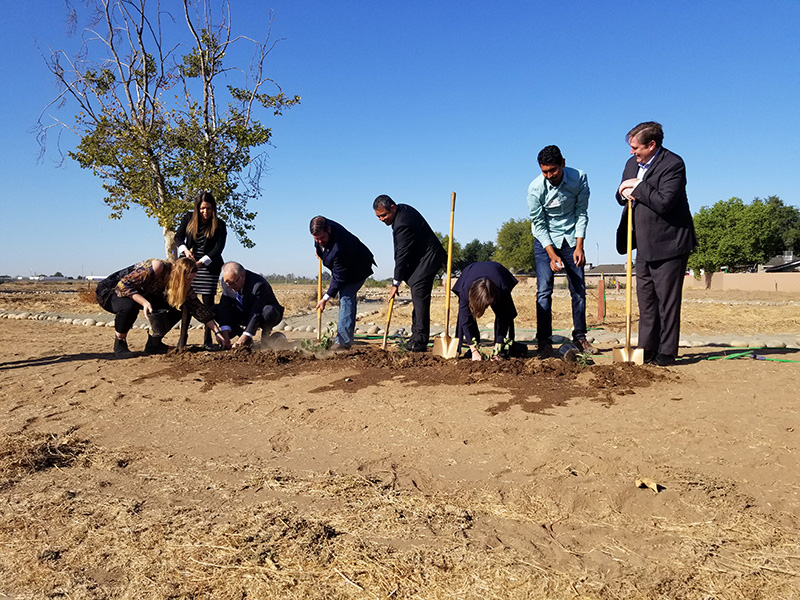Technical Assistance Toolkit Technical Assistance Profiles: TCC’s TA Expansion for Unincorporated and Tribal Application Summary

Summary
The Transformative Climate Communities (TCC) Program offers both planning and implementation grants to support communities most impacted by pollution in developing their own goals, strategies, and projects to reduce greenhouse gas emissions and local air pollution tailored to their unique context and needs. The program funds resident-led community development and infrastructure projects that achieve major environmental, health, and economic benefits in California’s most disadvantaged communities. As of 2023, TCC has awarded over $326 million to 30 unique communities.
Per legislation, TCC must provide technical assistance (TA) to all program applicants, and program staff have developed a robust suite of application, implementation, and evaluation assistance services for TCC applicants and awardees. Starting in Round 4, TCC expanded its application TA program to include disadvantaged unincorporated communities (DUCs) and tribal applicants. This has led to a large increase not only in applications from these communities, but also in competitively selected awardees.
Testimony
“Our office would not have been able to either apply or be successful in this planning grant without the high-quality and experienced technical assistance provider that SGC offered.”
– Murtaza Baxamusa, Program Manager for Regional Sustainability and Climate Action, County of San Diego
Program Development
Since its inception, TCC has provided application technical assistance to all Implementation Grant applicants. During Rounds 1 through 3, unincorporated communities were largely ineligible for Implementation Grant funds. Noticing the lack of unincorporated applicants, TCC program staff convened a TCC Disadvantaged Unincorporated Communities (DUCs) Working Group that recommended a framework for DUCs. The framework explains how DUCs face four key challenges to infrastructure investments:
- DUCs lack key infrastructure present in many incorporated communities, as well as financial capital to maintain and operate existing and future investments
- DUC legislation implementation lacks uniformity and monitoring, among other challenges
- Lack of reliable DUC data presents challenges for developing an investment framework
- Political, relational, and capacity challenges
TCC identified critical programmatic improvements to address these challenges. As a result, DUCs are now eligible for TCC implementation grants and are newly eligible for technical assistance for planning grants in Round 4.
The TCC team also recognized that tribes experience similar and additional barriers to applying to the program. To address those concerns, TCC expanded project area eligibility to better accommodate tribal communities and began offering technical assistance to Planning Grant applicants, in addition to the existing technical assistance available for Implementation Grant applicants from tribal communities.
TA Providers
Lead TA Provider
Estolano Advisors
Subcontractors
- Arup
- CivicWell
- Enterprise Community Partners
- Community Development Resource Group
- California Coalition for Rural Housing
- California ReLeaf
- Farallon Strategies
- National Indian Justice Center
TA Recipients
During Round 4, TA was available to all implementation grant applicants. Planning grant TA was only available to tribal and unincorporated communities. SGC’s TA team assisted a total of seven Implementation Grant and nine out of twenty-one TCC Planning Grant applicants that qualified for TA, including six tribal communities and three unincorporated communities.
Total Budget
The TCC program has invested $1.85 million in application support across three funding rounds, including both direct application TA and capacity building in between rounds.
Program Activities
The TA Providers provided tailored assistance to applicants that could be selected from a menu of services when stating their interest in applying to the TCC program. The services offered included project identification, project integration, budget development, application coordination, and review of draft application materials. Most applicants met with the TA providers weekly, allowing the TA Providers to provide immediate responses to questions about program requirements throughout the process. Determining Project Area eligibility was especially helpful for applicants from unincorporated communities and tribal communities, who had unique Project Area requirements.
Outcomes
Since establishing program eligibility for unincorporated communities and tribal communities in Round 4, TCC has seen a large increase in both unincorporated and tribal applicants and awardees. In Round 4, five of the seven Planning Grant awardees were tribal applicants and the remaining two awardees were unincorporated applicants. Survey responses indicated that applicants appreciated the TA support and found it critical to the development of their applications. A tribal applicant also expressed the value of having a TA provider that is culturally competent in tribal laws and values. In their feedback survey, one recipient said they were unlikely to have applied without TA.
Lessons Learned
Through the TCC team’s experience with TA, it has become clear that offering one-on-one and individualized assistance is effective to help applicants who have lower capacity due to unique and historical challenges apply to complex grant programs such as TCC. It is important to be intentional about reducing barriers for these historically disinvested communities, through efforts such as creating a Working Group dedicated to identifying challenges and proposing innovative solutions.
Round 4 was the first application cycle for which applicants from unincorporated communities and tribal communities could receive TA for Planning Grants, and TCC saw an immediate increase in number of applications from these applicants. During this first round offering TA to unincorporated and tribal communities, TCC program staff and the TA providers identified a few areas of improvement to make the program even more accessible for DUCs and tribal applicants that they will aim to incorporate into subsequent rounds. For example, allowing additional flexibility whenever possible both within the program guidelines and during TA seemed like it would help increase program accessibility for these applicants in particular.
Resources
The Investment Framework for Disadvantaged Unincorporated Communities, presented at the June 2021 Council Meeting, is available on our website.